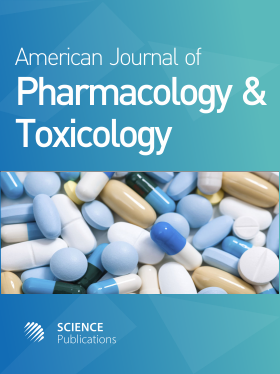Analgesic and Anti-inflammatory Activity of Euphorbia antiquorum Linn
- 1 Wayne State University, United States
- 2 North South University, Bangladesh
- 3 University of Dhaka, Bangladesh
Abstract
Euphorbia antiquorum (L.) is used as traditional medicine for various ailments in Bangladesh. But the scientific basis for its use especially in pain and inflammation remains largely unknown. Therefore, the present study was designed to evaluate analgesic and anti-inflammatory effect of the aqueous ethanolic extract of the whole plant. The analgesic activity was evaluated by hot plate, acetic acid induced writhing and formalin induced writhing methods in Swiss Albino mice at the doses of 250 and 500 mg kg-1 body weight. The extract was also investigated for the anti-inflammatory effect on Long Evans rats at above mentioned doses using carrageenan induced rat paw edema method. Phytochemical analysis of the extract revealed the presence of tannins, alkaloids, flavonoids, saponins and terpenoids. The extract elicited a significant (p<0.01) analgesic activity in a dose dependent fashion in both the early and late phases of formalin test and also in hot plate and acetic acid induced writhing tests at both the doses employed. In acetic acid induced writhing test, the extract (at 500 mg kg-1) produced a maximum inhibition of writhing reaction by 51.13% (p<0.001), which is comparable to that of the standard drug Diclofenac sodium (58.80%). The extract also significantly inhibited the licking response at the dose of 500 mg kg-1 in both the early phase (63.64%, p<0.01) and the late phase (66.43%, p<0.01) of formalin test while the standard drug inhibited by 64.20% and 72.03%, respectively. The oral administration of the extract significantly (p<0.001) inhibited inflammatory response induced by carrageenan in a dose dependent manner. The most prominent inhibition of 74.25% (250 mg kg-1) and 78.44% (500 mg kg-1) were observed at the 4th hour of study. Presence of various chemical constituents in the extract of Euphorbia antiquorum especially tannins, flavanoids, terpenoids and alkaloids might be responsible for the observed analgesic and anti-inflammatory effects. These experimental findings lend pharmacological support to the suggested folkloric uses of the plant in the management and/or control of pain as well as inflammatory conditions.
DOI: https://doi.org/10.3844/ajptsp.2015.46.55

- 5,887 Views
- 4,207 Downloads
- 7 Citations
Download
Keywords
- Euphorbia antiquorum
- Medicinal Plant
- Phytochemical Screening
- Analgesic
- Inflammation
